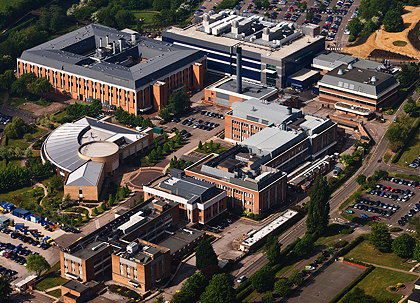UK plant is the first to join global Industry 4.0 elite

A GlaxoSmithKline pharmaceutical plant in Hertfordshire has become the first UK factory to be chosen to join the World Economic Forum’s Global Lighthouse network of frontrunners in applying Industry 4.0 technologies. The plant, located in Ware, is one of 18 sites around the world that were added to the network at the WEF’s recent meeting in Davos, Switzerland.
The network, established in 2018, now consists of 44 factories around the world that are intended to act as benchmarks for the global manufacturing community. The aim is to share and learn from best practices, and to help other manufacturers to deploy Industry 4.0 technologies, adopt sustainable practices and transform their workforces.
The GSK plant has applied advanced technologies throughout its manufacturing operation, using advanced analytics and neural networks to process data. This has improved line speeds at the site by 21%, cut downtime, increased yields, and delivered an OEE (overall Equipment effectiveness) improvement of 10%.
GSK has applied deep-learning image recognition to detect quality defects, and is using artificial intelligence to optimise machine throughput. By implementing digital twin technologies, it has boosted capacity by 13%, while cycle time monitoring and the use of digital visualisation tools have cut cycle times by 9%.
Other companies with plants in the Global Lighthouse network include Phoenix Contact, Schneider Electric, Renault, BMW, Ford, Unilever, Siemens, Danfoss, Bosch, Procter & Gamble, and Hitachi. The network is managed by McKinsey & Co in collaboration with WEF.
“The 44 lighthouses are trailblazers in the Fourth Industrial Revolution,” says Enno de Boer, partner and head of McKinsey’s Global Manufacturing Practice. “Manufacturing is often the starting point for innovating a new, company-wide operating system powered by the latest technology to achieve new levels of sustainability, agility, speed-to-market, and productivity. The value doesn’t stop at the factory door: instead, lighthouses find impact across the entire end-to-end value chain, from suppliers through to customers.

“This year, we believe the Global Lighthouse Network has found the secret sauce to overcome pilot purgatory and generate impact at scale,” he adds. “Moreover, by now the frontrunners have two to three years’ head-start compared to their peers. That should set off alarm bells for all manufacturers that are still busy trying to prove technology’s value instead of using technology to change the way they work.”
WEF has published a 40-page report outlining lessons learned from the Global Lighthouse network. It shows that 14 of the organisations have extended their Fourth Industrial Revolution (4IR) activities beyond their plants to create end-to-end (E2E) value chains that demonstrate what is possible when the thinking transforming their factories is applied more widely, resulting improved productivity, operating costs and speed-to-market.
In a second report, the WEF estimates that 70% of the 169 targets underpinning its sustainable development goals could be enabled by 4IR technologies – such as artificial intelligence, blockchains, the IoT, 5G and drones – that already exist.





